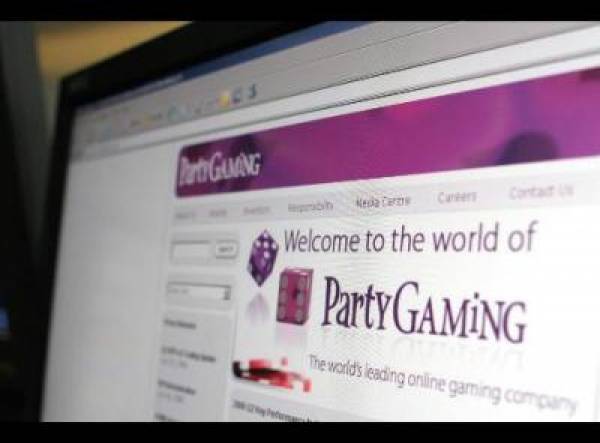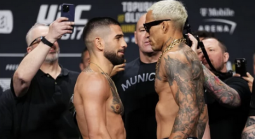Slot Machine Operator to Go After PartyGaming for $287 Million

A federal appeals court has opened the door for a gaming machine manufacturer to seek more than $287 million from a global Internet gambling company, saying that the machine maker's original award of $2.6 million did not represent the total eligible for the Internet company's forfeiture in a trademark suit.
The ruling is welcome news to a team of lawyers including, from Atlanta, Kilpatrick Stockton partner Theodore H. Davis Jr. and associate Louise T. Rains. They represented WMS Gaming of Waukegan, Ill., against Gibraltar-based PartyGaming PLC -- which did not show up to contest the case, claiming the U.S. has no jurisdiction.
WMS sued PartyGaming in 2006, claiming that the foreign company's use of the names "Jackpot Party" and "Super Jackpot Party" on its Internet games infringed trademarks WMS had registered for its machines as far back as 1997.
When PartyGaming defaulted, WMS asked a federal judge in Illinois to award it $287 million -- all of the profits PartyGaming made for 2004, 2005 and 2006 from its U.S. operations -- under federal trademark laws allowing a mark-holder to demand "an equitable accounting of profits" from an infringer.
WMS claimed it was entitled to all of PartyGaming's U.S. profits for those years, even from games not in violation of its marks. Under §35 of the Lanham Act, which governs trademark law, a winning plaintiff is entitled "to recover (1) defendant's profits, (2) any damages sustained by the plaintiff, and (3) the costs of the action."
Because PartyGaming never provided any breakdown of its profits from noninfringing games or offered any evidence why there should be an offset for business or other expenses, WMS argued, it should turn over all of its profits from the years it was in violation.
But U.S. District Judge Blanche Manning of Illinois' Northern District instead awarded what she calculated as a "reasonable" estimate of WMS' actual damages from the infringement -- $2.6 million -- itself based upon WMS' own estimated actual damages from 2004, which the judge simply multiplied by three.
But on Sept. 8, the 7th U.S. Circuit Court of Appeals agreed with WMS' position, sending the case back to Manning and ordering the lower court to revise its order.
PartyGaming -- which never entered an appearance during the proceedings, and is also under a contempt order -- forfeited its right to contest WMS' showing of its profits, wrote the appeals court.
"Courts consistently find that when a trademark plaintiff offers evidence of infringing and the infringer fails to carry its statutory burden to offer evidence of deductions, the plaintiff's entitlement to profits under the Lanham Act is equal to the infringer's gross sales," wrote the court.
The court also noted a 1916 U.S. Supreme Court decision, Hamilton-Brown Shoe Co. v. Wolf Bros. & Co., in which the Court addressed a trademark infringement case where it was difficult to ascertain "what proportion of the profit is due to the trademark, and what to the intrinsic value of the commodity." In that case, the Court wrote, "it is more consistent with reason and justice that the owner of the trademark should have the whole profit than that he should be deprived of any part of it by the fraudulent act of the defendant."
Working with Raines and Davis -- who argued the case -- was a team of lawyers from Chicago's Loeb & Loeb. Davis referred questions to Jeffrey Michel, WMS' executive director of licensing and gaming, who said there was ample reason to think the judgment would be satisfied.
"I'm expecting that we will get the full amount, and I am not expecting PartyGaming to put in an appearance," he said.
Even if the foreign gambling company does attempt to enter the case at this late date, he added, "the evidentiary segment has been closed, and I don't foresee any reduction in that amount."
Michel declined comment when asked whether PartyGaming had any U.S. assets that could be seized, or whether there was any other strategy in place to force the company to comply.
In response to a query, PartyGaming's director of corporate communications, John Shepherd, provided an e-mailed statement: "This issue is about jurisdiction. PartyGaming has never had any physical assets located in the US but is perfectly prepared to defend the merits of this claim in the appropriate jurisdiction. The Co. has made this point repeatedly to WMS. Both WMS's claims and the remedy it seeks are without foundation and justification."
Despite the loss in the 7th Circuit, PartyGaming's jurisdictional argument succeeded in a separate case. On Tuesday, a 2006 class-action suit in which online gamblers claimed the company allowed other players to collude in order to cheat unsuspecting players, was dismissed by U.S. District Judge Ann Aldrich of the Northern District of Ohio. She ruled that the dispute should more properly be heard in Gibraltar.
PartyGaming, which claims to be the largest online gambling company in the world, reported revenues of $254.8 million in the first six months of this year. Prior to 2007, the company's profits were largely gleaned from U.S.-based customers, but in late 2006 Congress passed the Unlawful Internet Gambling Enforcement Act, which effectively ended the ability of online betting companies to do business here.
The company is one of several that are reported to be under continuing investigation by the U.S. Department of Justice for illegally accepting bets prior to the enforcement of the UIGEA in late 2006. Last month its executive director told a British newspaper that settlement talks with the DOJ are continuing.
Greg Land, Fulton County Daily Report













